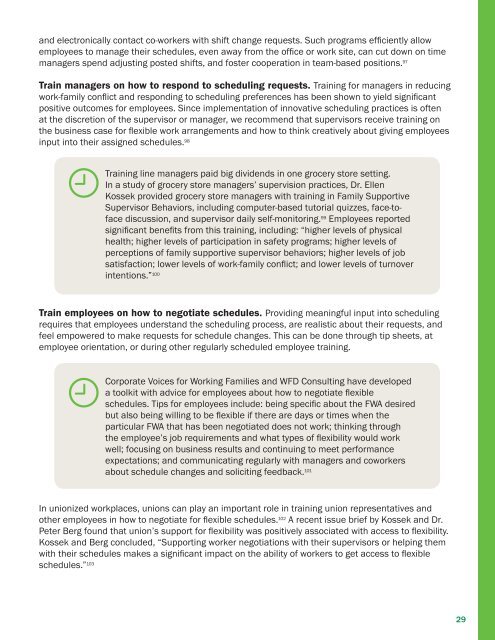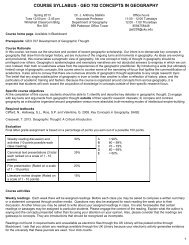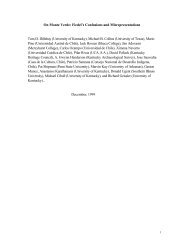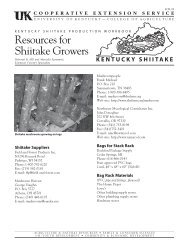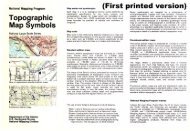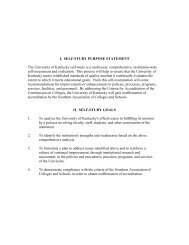Flexible Workplace Solutions for Low-Wage Hourly Workers
Flexible Workplace Solutions for Low-Wage Hourly Workers
Flexible Workplace Solutions for Low-Wage Hourly Workers
You also want an ePaper? Increase the reach of your titles
YUMPU automatically turns print PDFs into web optimized ePapers that Google loves.
and electronically contact co-workers with shift change requests. Such programs effi ciently allow<br />
employees to manage their schedules, even away from the offi ce or work site, can cut down on time<br />
managers spend adjusting posted shifts, and foster cooperation in team-based positions. 97<br />
Train managers on how to respond to scheduling requests. Training <strong>for</strong> managers in reducing<br />
work-family confl ict and responding to scheduling preferences has been shown to yield signifi cant<br />
positive outcomes <strong>for</strong> employees. Since implementation of innovative scheduling practices is often<br />
at the discretion of the supervisor or manager, we recommend that supervisors receive training on<br />
the business case <strong>for</strong> fl exible work arrangements and how to think creatively about giving employees<br />
input into their assigned schedules. 98<br />
Training line managers paid big dividends in one grocery store setting.<br />
In a study of grocery store managers’ supervision practices, Dr. Ellen<br />
Kossek provided grocery store managers with training in Family Supportive<br />
Supervisor Behaviors, including computer-based tutorial quizzes, face-toface<br />
discussion, and supervisor daily self-monitoring. 99 Employees reported<br />
signifi cant benefi ts from this training, including: “higher levels of physical<br />
health; higher levels of participation in safety programs; higher levels of<br />
perceptions of family supportive supervisor behaviors; higher levels of job<br />
satisfaction; lower levels of work-family confl ict; and lower levels of turnover<br />
intentions.” 100<br />
Train employees on how to negotiate schedules. Providing meaningful input into scheduling<br />
requires that employees understand the scheduling process, are realistic about their requests, and<br />
feel empowered to make requests <strong>for</strong> schedule changes. This can be done through tip sheets, at<br />
employee orientation, or during other regularly scheduled employee training.<br />
Corporate Voices <strong>for</strong> Working Families and WFD Consulting have developed<br />
a toolkit with advice <strong>for</strong> employees about how to negotiate fl exible<br />
schedules. Tips <strong>for</strong> employees include: being specifi c about the FWA desired<br />
but also being willing to be fl exible if there are days or times when the<br />
particular FWA that has been negotiated does not work; thinking through<br />
the employee’s job requirements and what types of fl exibility would work<br />
well; focusing on business results and continuing to meet per<strong>for</strong>mance<br />
expectations; and communicating regularly with managers and coworkers<br />
about schedule changes and soliciting feedback. 101<br />
In unionized workplaces, unions can play an important role in training union representatives and<br />
other employees in how to negotiate <strong>for</strong> fl exible schedules. 102 A recent issue brief by Kossek and Dr.<br />
Peter Berg found that union’s support <strong>for</strong> fl exibility was positively associated with access to fl exibility.<br />
Kossek and Berg concluded, “Supporting worker negotiations with their supervisors or helping them<br />
with their schedules makes a signifi cant impact on the ability of workers to get access to fl exible<br />
schedules.” 103<br />
29


